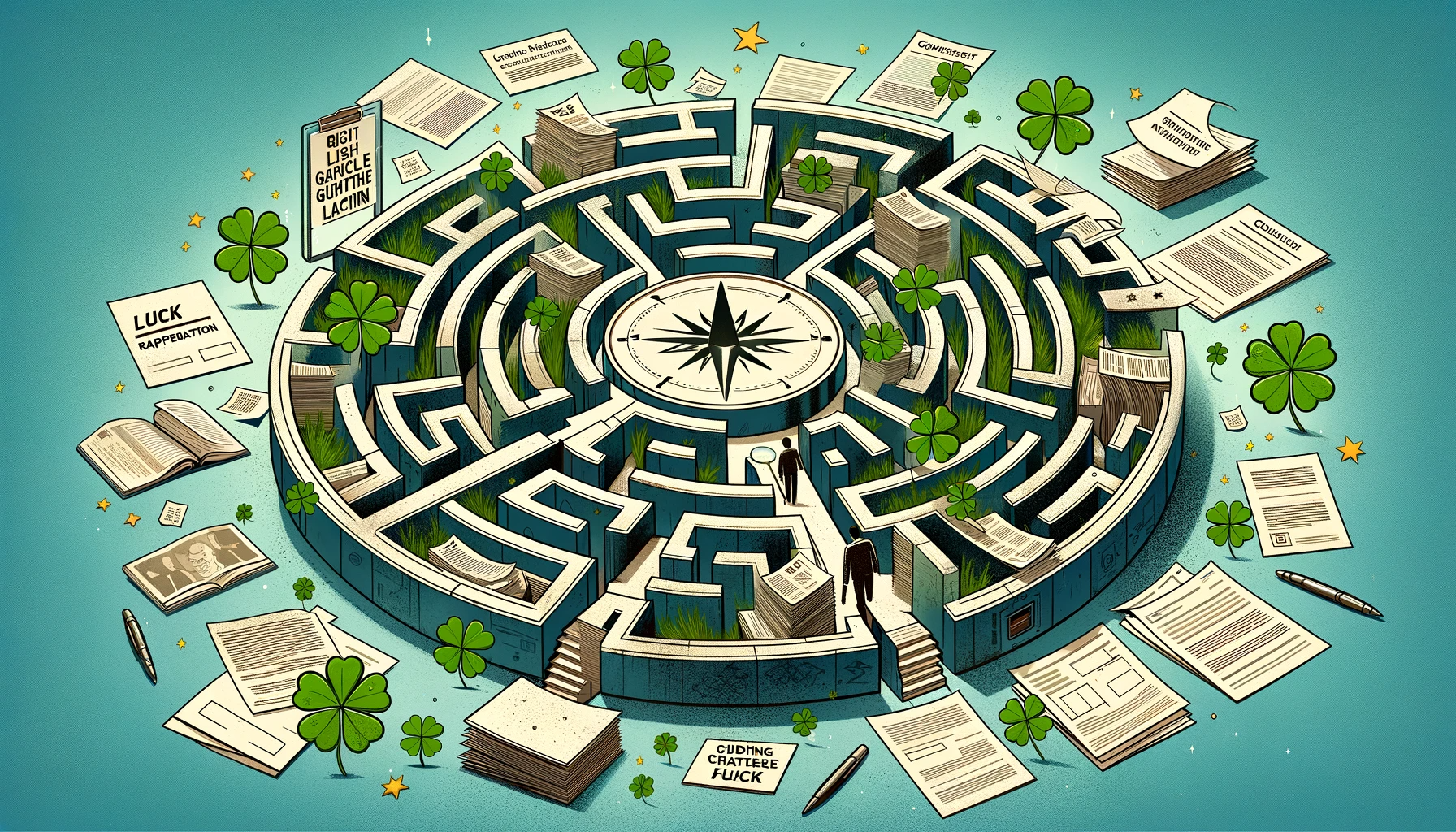Introduction
In the competitive and intricate world of grant funding, particularly within the European Innovation Council’s (EIC) Accelerator program, the role of luck is becoming increasingly pronounced. As startups and Small- and Medium-Sized Enterprises (SMEs) vie for significant funding like the EIC Accelerator’s total financing of up to €17.5 million, the growing complexity of the application process seems to amplify the element of luck. This article explores how the increasing intricacies of grant applications are inadvertently elevating luck as a critical factor in securing funding.
The Growing Complexity of Grant Applications
The application process for prestigious grant programs is becoming ever more complex, with detailed templates, stringent criteria, and extensive documentation. Each stage, from the initial expression of interest to the final pitch, demands precision, strategic communication, and a deep understanding of the evaluative criteria. As the process becomes more layered, the room for variability and, consequently, the influence of luck, increases.
The Role of Luck in a Multifaceted Process
Luck in grant applications manifests in various ways. It might be the alignment of the project with the specific interests or background of an evaluator, the timing of the application in relation to shifting program priorities, or simply the competitive landscape of that particular funding cycle. As the application process becomes more complex and subjective, these elements of chance begin to play a more significant role, affecting even the most meticulously prepared applications.
The Need for Simplification and Transparency
The growing recognition of luck as a factor in grant applications underscores the need for simplification and increased transparency in the application process. Simplifying the application requirements and criteria can reduce the ambiguities and variances that contribute to the luck factor. Increasing transparency in the evaluation process, including more detailed feedback and clearer communication of expectations, can help applicants better understand and navigate the complexities, reducing the reliance on chance.
Expert Guidance as a Counterbalance
While it’s impossible to eliminate the element of luck entirely, expert guidance can serve as a counterbalance. Professional writers, consultants, and freelancers with experience in the grant application process can provide strategic insights, helping applicants navigate the complexities and enhance their chances of success. Their expertise can help mitigate the luck factor by ensuring that applications are robust, compelling, and aligned with evaluative criteria.
Conclusion
As the application process for competitive grant funding becomes increasingly complex, the role of luck is inadvertently magnified. This growing influence calls for a reevaluation of application processes, aiming for simplification and increased transparency to reduce the element of chance. While luck will always play a role in such competitive environments, expert guidance and strategic preparation can help diminish its impact, allowing the true merit and potential of innovations to shine through. As grant programs like the EIC Accelerator continue to evolve, it’s crucial that they strive for a balance, ensuring that funding decisions are as fair, objective, and merit-based as possible.
About
The articles found on Rasph.com reflect the opinions of Rasph or its respective authors and in no way reflect opinions held by the European Commission (EC) or the European Innovation Council (EIC). The provided information aims to share perspectives that are valuable and can potentially inform applicants regarding grant funding schemes such as the EIC Accelerator, EIC Pathfinder, EIC Transition or related programs such as Innovate UK in the United Kingdom or the Small Business Innovation and Research grant (SBIR) in the United States.
The articles can also be a useful resource for other consultancies in the grant space as well as professional grant writers who are hired as freelancers or are part of a Small and Medium-sized Enterprise (SME). The EIC Accelerator is part of Horizon Europe (2021-2027) which has recently replaced the previous framework program Horizon 2020.
This article was written by ChatEIC. ChatEIC is an EIC Accelerator assistant that can advise on the writing of proposals, discuss current trends and create insightful articles on a variety of topics. The articles written by ChatEIC can contain inaccurate or outdated information.
- Contact Us -
EIC Accelerator Articles
All Eligible EIC Accelerator Countries (including the United Kingdom, Switzerland and Ukraine)
Explaining the Resubmission Process for the EIC Accelerator
A Short but Comprehensive Explanation of the EIC Accelerator
The EIC’s One-Stop Shop Funding Framework (Pathfinder, Transition, Accelerator)
Deciding Between EIC Pathfinder, Transition and Accelerator
A Winning Candidate for the EIC Accelerator
The Challenge with EIC Accelerator Open Calls: MedTech Innovations Dominate
Go Fund Yourself: Are EIC Accelerator Equity Investments Necessary? (Presenting Grant+)
Digging Deep: The New DeepTech Focus of the EIC Accelerator and its Funding Bottlenecks
Zombie Innovation: EIC Accelerator Funding for the Living Dead
Smack My Pitch Up: Changing The Evaluation Focus Of The EIC Accelerator
How Deep Is Your Tech? The European Innovation Council Impact Report (EIC Accelerator)
Analyzing A Leaked EIC Accelerator Interview List (Success Rates, Industries, Direct Submissions)
Steering the EIC Accelerator: Lessons Learned from the Pilot Program
Who Should Not Apply To The EIC Accelerator And Why
The Risk of Presenting all Risks in the High-Risk EIC Accelerator Program
How to Prepare an EIC Accelerator Resubmission
How to Prepare a Good EIC Accelerator Application: General Project Advice
How to Craft an EIC Accelerator Rebuttal: Explaining Grant Proposal Resubmissions

